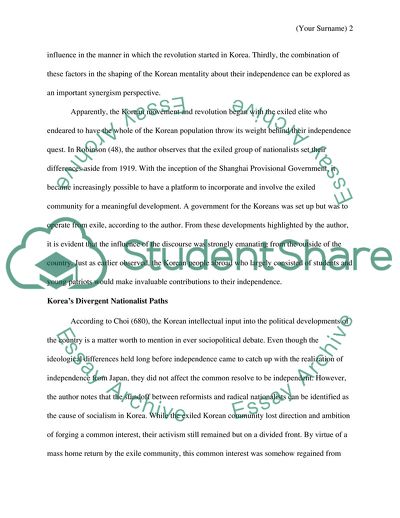Cite this document
(Issues on Korean Nationalism Essay Example | Topics and Well Written Essays - 1250 words, n.d.)
Issues on Korean Nationalism Essay Example | Topics and Well Written Essays - 1250 words. https://studentshare.org/politics/1748677-korean-nationalist
Issues on Korean Nationalism Essay Example | Topics and Well Written Essays - 1250 words. https://studentshare.org/politics/1748677-korean-nationalist
(Issues on Korean Nationalism Essay Example | Topics and Well Written Essays - 1250 Words)
Issues on Korean Nationalism Essay Example | Topics and Well Written Essays - 1250 Words. https://studentshare.org/politics/1748677-korean-nationalist.
Issues on Korean Nationalism Essay Example | Topics and Well Written Essays - 1250 Words. https://studentshare.org/politics/1748677-korean-nationalist.
“Issues on Korean Nationalism Essay Example | Topics and Well Written Essays - 1250 Words”. https://studentshare.org/politics/1748677-korean-nationalist.


